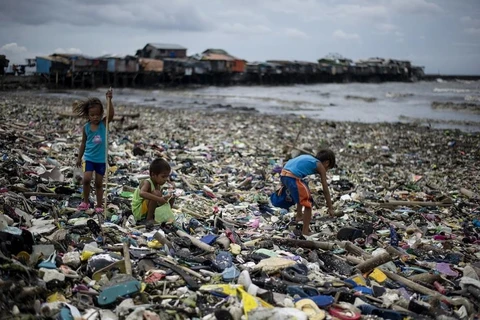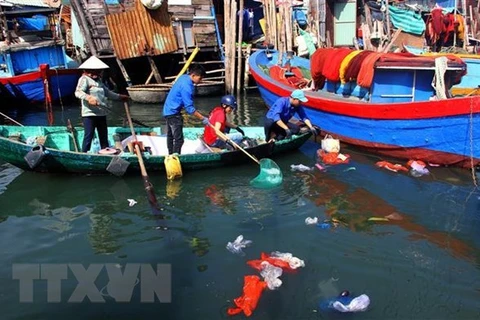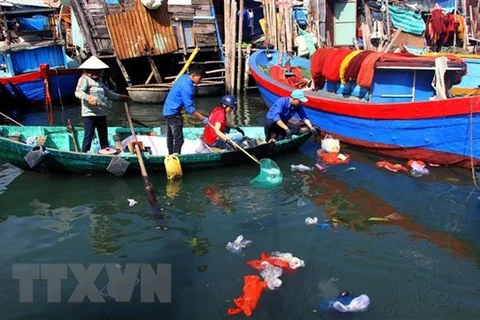Kuala Lumpur (VNA) – Malaysia is the biggest consumer of plastic packaging in Asia, reported the World Wide Fund for Nature (WWF) on February 17.
The WWF report on plastics looked at China, Indonesia, Malaysia, the Philippines, Thailand and Vietnam, which contribute 60 percent of the estimated 8 million tonnes of plastic that enter the world's oceans each year.
Globally the volume of plastic waste going into the ocean is set to quadruple between 2010 and 2050, meaning that the sea could contain more plastic by weight than fish by mid-century, the report noted.
Malaysia ranked highest among the six countries analysed in terms of annual per-capita plastic packaging consumption, at about 16.8 kg per person, followed by Thailand at 15.5 kg.
Meanwhile, carbon emissions associated with plastic – from production to burning - reached 860 million tonnes in 2019, greater than the annual emissions of Thailand, Vietnam and the Philippines combined, it added.
Thomas Schuldt, WWF's coordinator of work on a plastic circular economy, said Malaysians consumed the most plastic because they were among the wealthiest.
"There is lots of food delivery, which is plastic packaging-heavy - but in addition, there are also a lot of day-to-day products bought in supermarkets," Kuala Lumpur-based
Schuldt told the Thomson Reuters Foundation.
Schuldt urged Malaysia and other Asian governments to introduce regulation to limit single-use plastics.
He called on Malaysia to also work with businesses and green groups to introduce a system encouraging consumer goods firms to use less plastic packaging and fund better recycling schemes, as more than 30 other countries have done, including in Asia.
Last year, the government launched the Malaysia Plastics Pact to start a public debate on how to improve recycling, and its findings are likely to be released in March, Schuldt noted.
Malaysia's waste is often mixed and ends up in landfill, which can be washed into rivers and seas by extreme weather.
Awareness campaigns to encourage Malaysians to get into the habit of separating their waste could improve recycling rates, Schuldt said./.
VNA
























